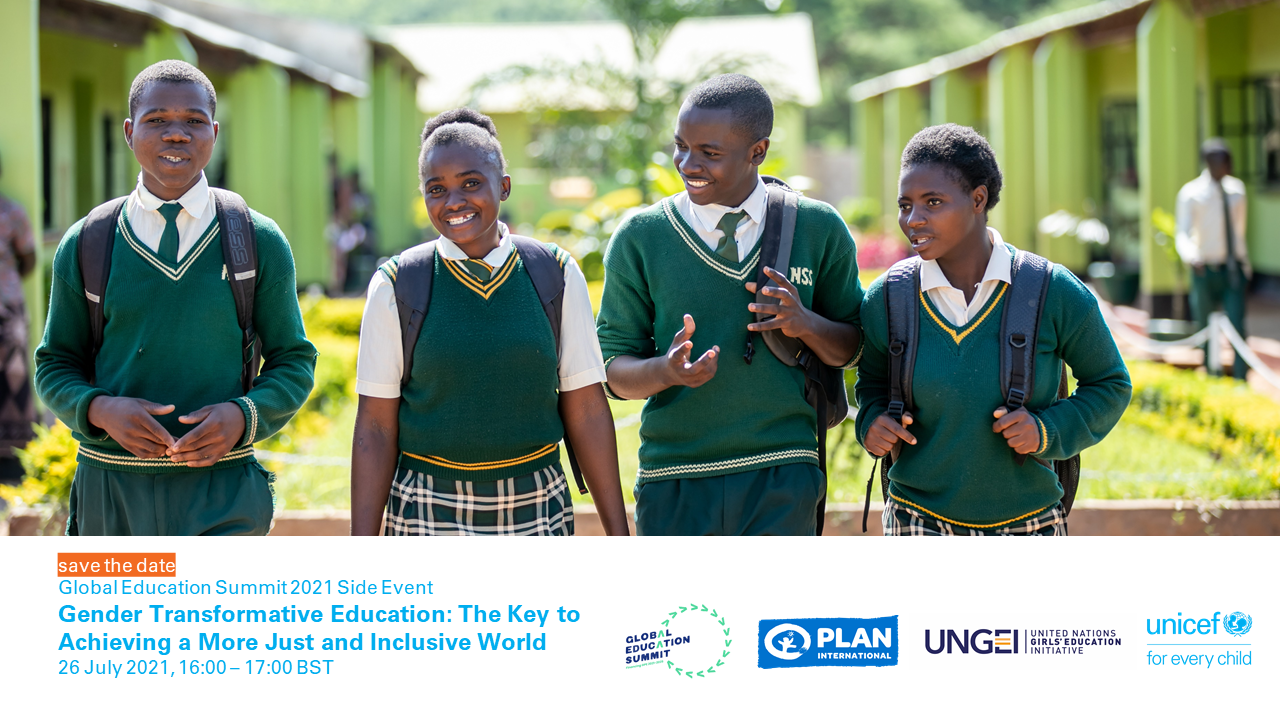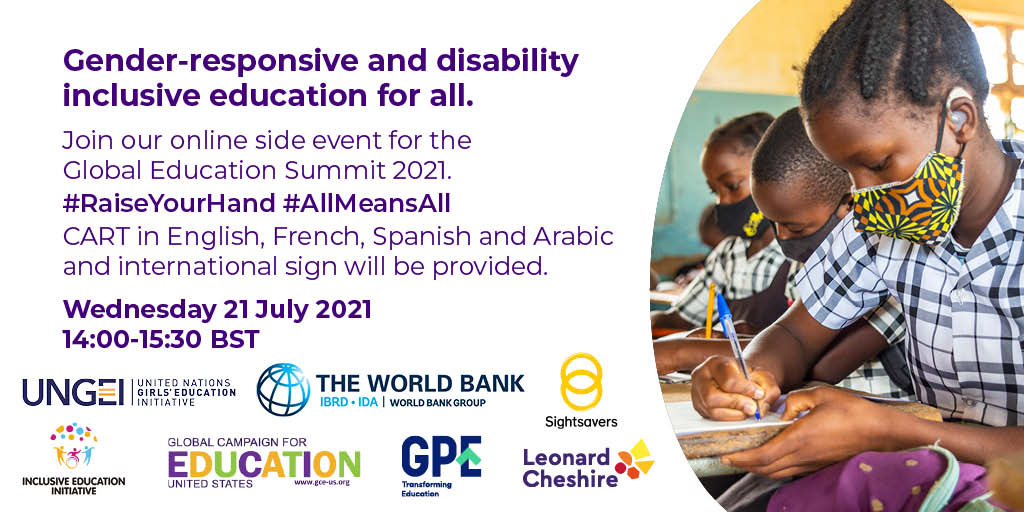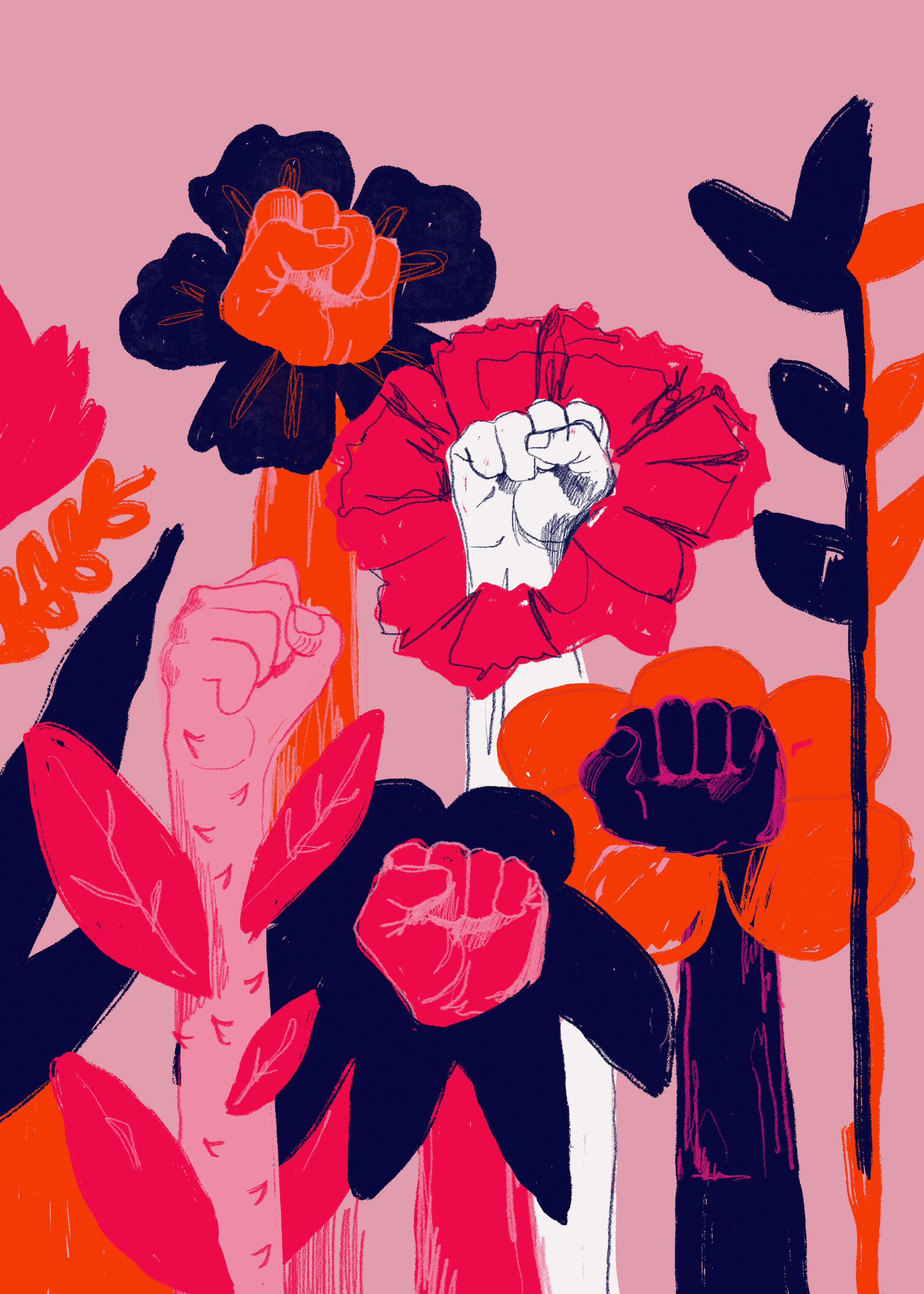In response to COVID-19, UNGEI collected a series of case studies on programmatic approaches to the gender-related impacts of the pandemic on education. Organisations and networks providing essential and gender-responsive support to learners and teachers throughout the pandemic shared their innovations, lessons learned, and challenges faced through a year of unprecedented disruption to education. And, through the spread of initiatives focusing on different barriers to girls’ education in different regions, a common thread emerged: the use of WhatsApp.
WhatsApp is an online messaging platform (owned by Facebook) through which users can send text and voice messages, make voice and video calls, and share images, documents, videos and other content. As of February 2020, WhatsApp had two billion users around the world. When the COVID-19 lockdowns came into force in late March 2020, usage of WhatsApp around the world had grown by 40%. In many countries, it is now the default means of digital communication, information-sharing and social organizing. In this blog, we explore how WhatsApp emerged as a useful tool for delivering distance teaching and learning in our case study collection.
Reaching learners in low-connectivity locations
In Pakistan, the Idara-e-Taleem-o-Aagahi (ITA) programme Siyani Sahelian - Advancing Action for Adolescent Girls (A³G) supported teachers to create WhatsApp groups of students in clusters. Informed by the survey findings (where on average 50% households reported to have access to Whatsapp), these groups facilitated the sharing of online learning materials (including videos and audio clips) and assessments. Learners would undertake assessments under the supervision of a parent or guardian at home, and then share images of their work with the community teacher via WhatsApp.
As well as offering a low-connectivity and accessible platform for learning, youth-led networks have been using WhatsApp to grow their communities, provide support and keep in touch with their network. Slam Out Loud (SOL) is an Indian youth-led non-profit which uses the transformational power of the arts to support socio-emotional learning and mental well-being for marginalised children. In response to the COVID-19 related school closures in India from March 2020, SOL adapted their interventions to disseminate free and accessible resources to learners through WhatsApp and other low-tech platforms.
Seep Agrawal, Manager for Partnerships and Strategic Alliances for Slam out Loud, explains why WhatsApp has been such a powerful tool for their work: “With 50% of India's internet-enabled audience (over 400 million users) having access to WhatsApp, and a previous internal review finding that 75% of children in SOL’s programs have access to their parent’s WhatsApp accounts for at least one hour in a day, WhatsApp presented itself as the most immediate medium to reach children. Additionally, deploying WhatsApp content in various formats such as text, image, video, and voice notes made for more equitable learning opportunities for children with diverse learning skills and needs.”
Sustaining teachers’ professional development
Whilst teachers’ innovation in using WhatsApp as a way to keep learners engaged must be celebrated, the strain the pandemic has put on teachers also cannot be ignored. With schools closed, teachers also missed out on professional development opportunities and training. Women teachers in particular faced the double burden of childcare and working from home, as well as the challenges of the gender digital divide [1]. Understanding how to support the teaching workforce became critically important during school closures. Teachers will also be on the frontlines when schools reopen, providing specialised support for learners who have fallen behind, and leading on the “build back equal” agenda in schools.
The Improving Gender Attitudes, Transition and Education Outcomes (IGATE) programme seeks to improve learning outcomes and positive transitions for 30,550 marginalized girls in rural communities of Zimbabwe. In-school teacher professional development is a key aspect of the programme’s work. Results from a 2020 midline report showed that before schools closed, in-school teacher professional development was contributing to improved teaching quality and practices among teachers to address the challenge of weak foundational literacy and numeracy skills across primary and secondary learners. Therefore, sustaining professional development with teachers throughout school closures was a priority for IGATE.
Throughout 2020, over 800 primary and secondary school teachers participated in a modified set of courses on foundational literacy and numeracy to teachers, carried out on WhatsApp to reinforce previous content and address some subject knowledge gaps. Teachers were grouped and 10 units of both literacy and numeracy courses were shared as JPEGs or pdf. The units, such as ‘Addition and Subtraction: Patterns, connections and relationships’ included examples of classroom activities and critical subject and pedagogy messages. The platform facilitated discussions led by IGATE teams where teachers shared their previous experiences in classrooms relating to teaching literacy and numeracy at multiple levels and supported each other to share learnings, gaps in understanding and good practices. Teachers who engaged in discussions and completed a brief ‘text-it’ assessment were awarded with completion certificates.
WhatsApp: a short-term solution, but no silver bullet
WhatsApp may have been a useful tool for both learners and teachers during lockdown, but it is not a long-term learning solution. The features which make WhatsApp and other messaging platforms such powerful tools for learning, communication, activism and social organizing, can also be used to quickly spread misinformation, conspiracies and hate. True to many open-access platforms in the digital space, WhatsApp cannot guarantee the safety and protection of learners. Indeed, its end-to-end encryption function can be attractive for criminals circulating materials relating to child abuse. Across the globe, girls, children with disabilities, refugee children, and lesbian, gay, bisexual and transgender (LGBT) students frequently experience high levels of violence and bullying. Human Rights Watch has also raised the alarm on the dangers of cyberbullying, with abuses moving from classrooms to online spaces.
In the COVID-19 context, it was (and in several countries, still is) the teachers, parents and caregivers, learners, community members, and activists, who have made learning possible during school closures. WhatsApp is simply a tool which could be quickly leveraged to communicate, connect and share learning materials. There are dedicated online platforms that have been created to safeguard against these issues, such as Kolibri and Moodle. But as shown by these real-life examples, the widespread use of WhatsApp to fulfil one of the most fundamental of human rights during lockdown - education - must serve as a call to action for more innovative, free, accessible and safe platforms for learning.



 English
English العربية
العربية Български
Български Hrvatski
Hrvatski Čeština
Čeština Dansk
Dansk Nederlands
Nederlands Suomi
Suomi Français
Français Deutsch
Deutsch Ελληνικά
Ελληνικά हिन्दी
हिन्दी Italiano
Italiano Română
Română Русский
Русский Español
Español Maltese
Maltese Zulu
Zulu አማርኛ
አማርኛ